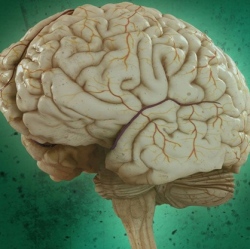
Scientists have created an electronic memory cell that mimics the way that human brains work. The cell can process and store multiple bits of information, like the human brain. Scientists hope that developing it could make for artificial cells that simulate the brain’s processes, leading to treatments for neurological conditions.
The new cells have been likened to the difference between having an on-off light switch and a dimmer, or the difference between black and white pictures or those with full colour, including shade light and texture. While traditional memory cells for computers can only process one binary thing at a time, the new discovery allows for much more complex memory processes like those found in the brain.
They are also able to retain previous information, allowing for artificial systems that have the extraordinary memory powers found in human beings. While the new discovery is a long way from leading to a bionic brain, the discovery is an important step towards the dense and fast memory cells that will be needed to imitate the human brain’s processes.
“This is the closest we have come to creating a brain-like system with memory that learns and stores analog information and is quick at retrieving this stored information,” Sharath Sriram, who led the project, said.
